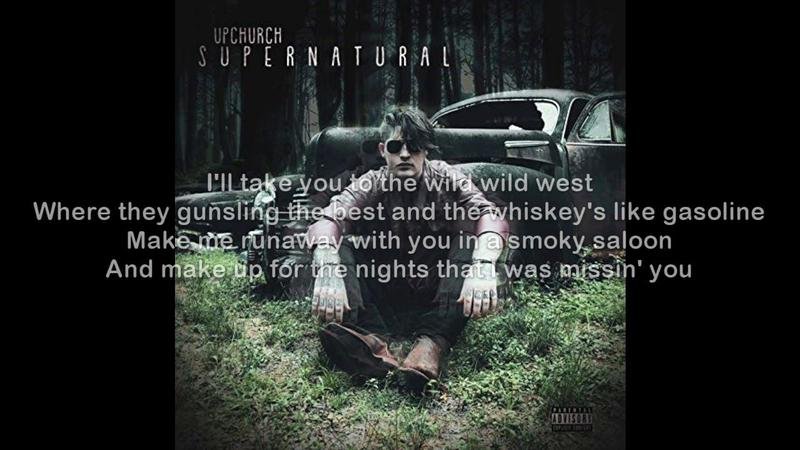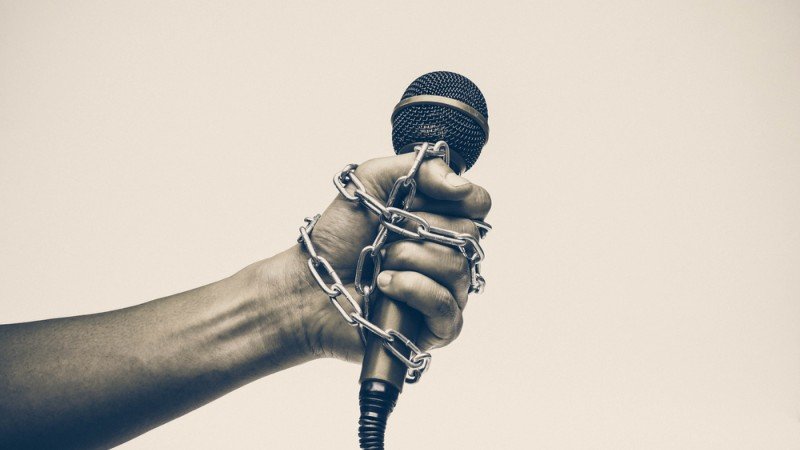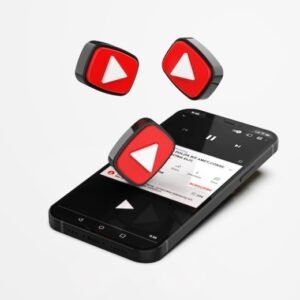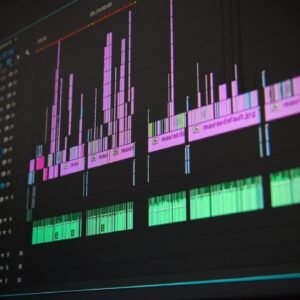Some nights you can’t sleep. You lay awake turning it over in your head over and over again, trying to make sense of the current situation, how we got here and what that means from a future perspective. You wish you could turn off your mind and let the darkness carry your thoughts away but it just won’t stop. That’s when the headphones come out. If I’m laying on the couch it’s likely because I’ve been through my laptop listening to songs about everything and anything I can get my teeth into. This playlist is those songs that don’t talk about people or specific situations directly, but in fine poetry so metaphorical you can substitute their meaning with any one of your concerns, big or small. They were important to me as i tried to figure myself out and I hope they help you too as you try to do the same.
In this article, I will talk about “I Do Not Own The Rights To This Music”. Let’s start.
I Do Not Own The Rights To This Music: Is It Okay To Use Copyrighted Music On Facebook?
As a musician, I get asked all the time about using copyright music on Facebook. I think it’s a great question to ask, because there’s a lot of misinformation out there.
The answer is: it depends. Below are some common scenarios and my answers based on my experience as a musician and an attorney.
The short answer is that it’s usually okay to use copyrighted music on Facebook, but you should consult an attorney who is familiar with this area of law before doing so.
Common Scenarios:
1) You’re making a video for yourself or for friends and family only (not for commercial purposes).
2) Your video is for educational purposes only (not for commercial purposes).
3) Your video is for commercial purposes (such as advertising or marketing), but does not include any spoken dialogue or other parts of the song that would require permission from the copyright holder (for example, just playing part of a song in the background).
How To Avoid Copyright Infringement On Facebook
How To Avoid Copyright Infringement On Facebook
Copyright infringement can be a complicated concept, but it’s important to understand the basics. This is especially true if you run a business, blog or website and want to avoid getting sued for using other people’s work without permission.
The good news is that Facebook makes it easy for people to report copyright infringement. If someone finds your page, post or photo on Facebook, they can report it by clicking on “Report” in the upper right corner of the post or image. Once you are reported, Facebook will send you an email asking you to remove the image or video from your page and/or account. If you don’t comply within 48 hours, they will delete your content themselves and permanently restrict the ability to post new images on your profile.
You may have heard about Facebook’s new policy on copyright infringement. This is a big deal, right? Well, maybe not as big as you think.
The new policy is a lot more lenient than many people think. It’s really nothing more than a clarification of what they’ve been doing all along — though it certainly helps if you want to avoid getting sued.
Here are the basics:
1) If you’re posting someone else’s work, you need permission from the owner to use it. (That means no more posting copyrighted images without permission.)
2) If you want to post a video that includes copyrighted music in the background, you need permission from both the owner of the video and from whoever owns that song.
How You Can Post Music Without Copyright?
Use Stock Libraries
You can use stock libraries like Pond5 or Shutterstock to find music that is affordable and free of copyright issues.
If you have the budget, having original music composed for your video can elevate it to a new level. However, this will take time and money. You may also want to consider hiring a composer who specializes in video game-related music (search “videogame composer” on Google).
Once you’ve selected your music, add it to your project and export it as WAV or AIFF files.
The music in your video can make or break how viewers perceive it. As such, you may want to consider using stock libraries that have pre-packaged music for videos.
These libraries will often have a wide selection of tracks at different lengths and qualities. It is important to note that some of these tracks may not be licensed for use in commercial projects, so you should always check the terms of service before purchasing.
Stock libraries are also convenient because they allow you to purchase just the track that you need without having to worry about negotiating rights or locating an artist who will give you permission to use their work.

Get A License From The Copyright Owner
Get A License From The Copyright Owner
If you want to use music in a video, you’ll need to get permission from the copyright owner. That’s because, by law, copyright owners have the exclusive right to decide how their work is used.
You can either license the song or pay an artist a fee. You can also use royalty-free music if you want to avoid the complicated process of getting permission or paying for it.
If you’re a musician, songwriter or producer who wants to use someone else’s music in your own work, it’s important to understand how copyright law works. If you don’t, you could end up being sued by the artist or record label that owns the rights to that music.
Get A License From The Copyright Owner
If you want to use another artist’s song in your video, you’ll need a license from the copyright owner. And if you want to use an artist’s music track as background music for your podcast or radio show, you’ll also need permission from that artist’s label.
Some musicians are OK with having their songs used in other people’s projects (such as small YouTube videos), but most will require some kind of compensation before they sign off on it. That could mean giving them credit for their work or even a portion of the proceeds from your project (if it makes money).
Use Facebook Sound Collection
Facebook Sound Collection is a collection of sounds that you can use in your Facebook adverts, videos and other forms of content.
The Facebook Sound Collection is a huge collection of sounds that you can use in your Facebook adverts, videos and other forms of content. This collection was created by the team at The Social Media Agency Ltd.
The collection includes over 500 audio files that you can use for free. You’ll find a huge range of music and sound effects in this library. The team has made it easy to search through their catalog by adding tags to each file so you can easily find what you’re looking for.
You can download all of these files for free from the official website. If you want to access them directly from your Facebook account, you’ll need to sign up for an account first.
You can use Facebook’s sound collection for your website. Here are a few snippets of code to get you started:
You can use this code to play a sound from Facebook:
Your browser does not support the audio element.

Using Royalty-Free Music
Royalty-free music is a type of music that has been created for commercial use. It can be used in videos, games and other media without having to pay any royalties.
Royalty-free music is usually sold as stock music or sound effects on sites like AudioJungle and Music Bed. You can also find royalty-free music on sites like Pond5, where you can purchase it in audio format or even download the full track.
Royalty-free music comes with different licenses that allow you to use the music in different ways. Some licenses will allow you to use the track for all your projects for free, while others require you to pay a small fee if you want to use the track multiple times or on more than one platform.
The main advantage of using royalty-free music is that it doesn’t come with any restrictions, so there’s no need to worry about getting sued if someone else uses your video with copyrighted material!
What Happens If You Post Copyrighted Videos
Copyrighted music is a tricky thing, especially if you’re a YouTuber. There are many people who mix copyrighted music with their own content and make money from it, but there are also some risks involved.
What Happens If You Post Copyrighted Videos
If you post copyrighted videos on YouTube, the site will take them down. This is because when you upload a video to YouTube, you agree to their terms of service which say that you can’t post copyrighted material.
If you do happen to have an unlicensed song or video on your channel, YouTube will send you an email asking if they can monetize your video or if they should remove it completely. The former means they’ll put ads on your video so that they can earn money off of it. The latter means they won’t allow ads on your video at all and will just leave the video up for viewing purposes only (without any compensation).
If this happens to you, don’t panic! It’s easy enough to fix: simply license the track by contacting whoever owns the rights (the artist or their record label) and making sure that everything is above board before uploading again!
FAQs for I Do Not Own The Rights To This Music
Now that you understand “I Do Not Own The Rights To This Music”, let’s move on to the FAQ section.
Can I Post A Video To Facebook With Music?
Can I Post A Video To Facebook With Music?
Can I post a video to Facebook with music? If so, what are the rules?
Yes, you can add music to your videos. However, the subject of copyright law is complex and constantly evolving. We encourage you to do your own research and consult with an attorney if you have any questions about how to legally use copyrighted material on Facebook.
The following are some basic guidelines for adding music to videos:
If you are uploading a video that contains copyrighted content, you must receive permission from the copyright owner before publishing it. This includes background music and sound effects as well as other types of audio such as voiceovers or commentary.
Can I post a video to Facebook with music?
The answer is yes. But, there are a few things you need to know. Here’s what you need to know about posting videos on Facebook with music.
1. Do not use copyrighted music in your videos or on your personal Facebook profile. It’s illegal, and if you’re caught, your video will be taken down and you could face legal action.
2. You can use copyrighted music in videos you post to pages or groups because it’s considered fair use (as long as the audio is properly licensed).
How Do You Write A Music Disclaimer?
How Do You Write A Music Disclaimer?
Music is a very important part of any video. It adds a lot of emotion and feeling to your project, but it can also be a legal nightmare if you don’t properly credit the song or artist in your video.
To avoid legal issues with copyright infringement, there are two ways to credit music in your video:
Credit the artist and/or song title in the description of your video. This serves as a disclaimer that you have paid for the rights to use the song in your video. Include a “bump” at the beginning or end of your video. This is an audio file that comes on automatically when someone watches the video on YouTube or similar sites. This audio file has no sound (no music) and only serves as an announcement that you have paid for the rights to use this song or music in this video.
How Do You Put A Disclaimer To Avoid Copyright?
You can’t put a disclaimer in the description of your video.
The only way to avoid copyright is to use royalty-free music. You can find a lot of free music in the Free Music Archive, CCMusicNow and many other websites. Just make sure you check their licensing terms before using it!
If you want to use a song in your video, but do not want the creators to come after you for copyright infringement, it is important to put a disclaimer in your video.
A disclaimer is not the same thing as an attribution. An attribution is what you see at the beginning of videos that credit the creator of the content they are using. For example: “Music: Song Name by Artist Name” or “Song Title by Artist Name”.
A disclaimer, on the other hand, tells viewers that they are not allowed to use your video without permission, and it may also tell them how they can get permission. Disclaimers are also used in filmmaking and photography, but for different purposes than music licensing.
How Do You Give Credit To A Song Example?
How Do You Give Credit To A Song Example?
What is copyright?
Copyright is the exclusive legal right to reproduce, publish, perform, or sell a literary, artistic, or musical work. It protects original works of authorship including literary, dramatic and musical works; pantomimes and choreographic works; pictorial, graphic and sculptural works; motion pictures and other audiovisual works; sound recordings (except those fixed in a tangible medium); architectural works; and computer software.
Copyright exists from the moment a work is created. Under U.S. law, copyright lasts for the life of the author plus 70 years. If the work was created after 1978 but before 2003 (or if it was published before 2003), copyright protection has already expired for many works under U.S. law due to their age (70 years after creation).
How Do You Give Credit To A Song Example?
In this case, the artist who sings the song is credited at the beginning and end of the video.
If you use a popular song, you don’t need to give credit. However, if you use a less well-known song, it’s good to mention who wrote and performed it.
You can also use musical interludes in addition to giving credit for each track that you use. This way, people know what they’re listening to is from your video and not something else.
How Do You Write A Copyright Disclaimer?
The copyright disclaimer is a statement that you can include in your website, blog, or other online content. The disclaimer informs others that the material you are using is copyrighted and that it should not be reproduced without permission.
How Do You Write A Copyright Disclaimer?
You can easily write a copyright disclaimer using this template:
“The material on this site is copyrighted by [name of owner], all rights reserved.”
You should use this statement if you want to let people know that the material they are reading or viewing has been copyrighted. If you have any questions regarding this topic, please feel free to contact me at [insert your email address].
If you’re using any copyrighted material, like music, images or video, you’ll need to include a copyright disclaimer on your video. This is to ensure that you don’t get sued for copyright infringement.
There are many ways to write a copyright disclaimer, but here’s a simple example:
This video contains copyrighted material that has not been authorized for display or distribution. Any reproduction of this content is prohibited without the express written consent of the owner of the content.
Conclusion for I Do Not Own The Rights To This Music
This project was relatively simple. The most difficult part was arranging all the assets in After Effects and getting them to loop, which was complicated but not too difficult. The music I used for the background song was actually put to use somewhere else, but this is why after a few months of having short snippets of it as I renders progressed I decided to make a video with it.
Thank you for reading, and I hope you get the point of “I Do Not Own The Rights To This Music”. If not, please contact me or leave a comment below. I would be pleased to help in any way I can.





